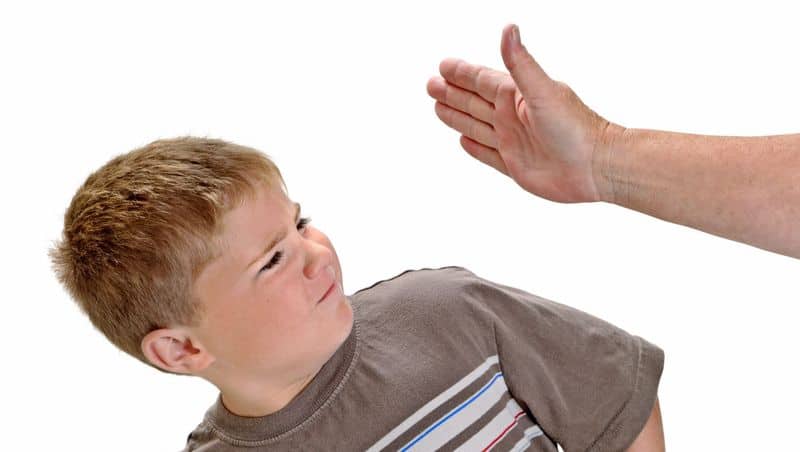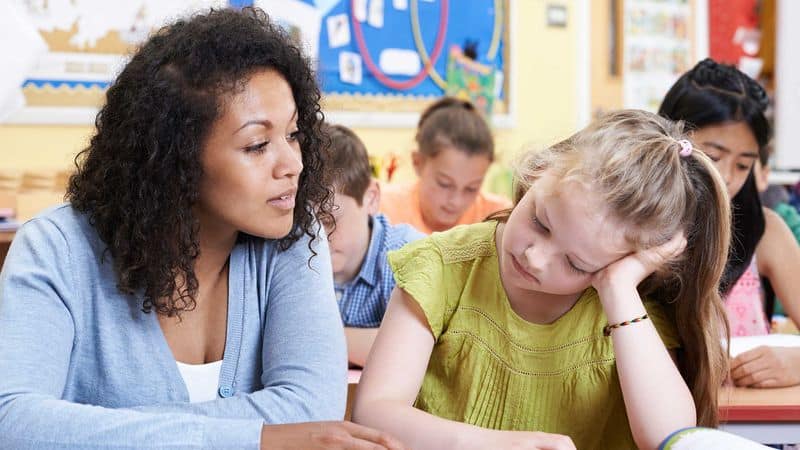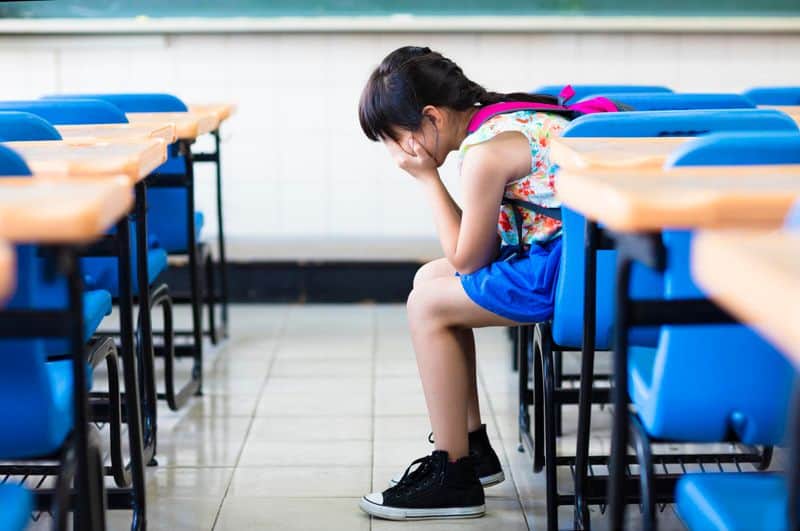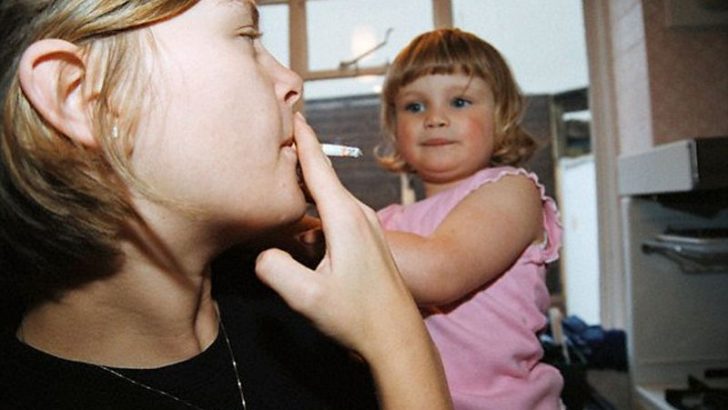The ways in which parenting styles have evolved over the decades are fascinating. What was once considered normal can now raise eyebrows or even generate public outrage. Our parents, with their well-intentioned methods, often engaged in practices that today might be seen as outdated or even harmful.
This list explores twelve such activities that would certainly stir controversy in today’s world. From parenting approaches to social interactions, these habits reveal how societal norms and values have shifted. Discover these fascinating actions that, though once accepted, could easily lead to a modern-day cancelation.
1. Corporal Punishment

Many parents from past generations believed in corporal punishment as a means of discipline. Spanking with a wooden spoon or belt was often considered effective and necessary. Today, such actions would raise significant concerns about child abuse. Society has shifted towards non-violent forms of discipline, promoting dialogue and understanding. This reflects a broader cultural movement towards respecting children’s rights and emotional well-being. While older generations often view such discipline as harmless, contemporary views prioritize mental health and non-violence. It’s a stark contrast that highlights how much attitudes towards child-rearing have changed over the years.
2. Secondhand Smoke Exposure

In the past, smoking was a widespread habit, even around children. Parents often smoked in confined spaces like cars or homes, exposing their children to secondhand smoke regularly. Today, this would be heavily criticized due to the known health risks associated with secondhand smoke exposure. Public awareness campaigns have significantly reduced smoking rates and have emphasized the importance of protecting children’s health. The push for smoke-free environments reflects society’s broader commitment to health and safety. This shift underscores a growing understanding of the impact environmental factors have on physical well-being.
3. Gender Stereotyping

Gender roles were more rigidly defined in previous decades, with boys and girls often pushed towards specific toys and activities. Today, such gender stereotyping is increasingly challenged, as society embraces more fluid and inclusive identities. Modern parenting encourages children to explore interests beyond traditional gender norms. This shift is part of a larger cultural movement towards equality and acceptance. By breaking down these stereotypes, contemporary views aim to foster individual expression, allowing children to pursue what truly interests them without societal constraints. Such freedom was not always available to past generations.
4. Lack of Car Safety

Car safety has dramatically improved over the years. In the past, seatbelts were not always used, and children often roamed freely in cars during trips. Today, such practices would be deemed irresponsible and unsafe. Current regulations mandate car seats and seatbelts, reflecting a significant shift in how society views safety. This evolution underscores the importance of protecting young passengers. Enhanced awareness and technological advancements have transformed road safety, prioritizing the well-being of everyone in the vehicle. It’s a testament to how much priorities have changed regarding child safety on the road.
5. Laissez-Faire Supervision

Once, it was common for children to play outside unsupervised until dusk. Parents believed in fostering independence and resilience through free play. Today, such lack of supervision might be seen as neglectful due to increased safety concerns. Modern parenting often involves more structured and monitored activities. This change reflects a societal shift towards vigilant child-rearing, emphasizing safety and security. The transition highlights how perceptions of risk and responsibility have evolved. While autonomy remains important, balancing it with safety has become a key focus in contemporary parenting practices.
6. Promoting Sun Tanning

Sun tanning was once a widely encouraged activity, with little regard for the potential dangers of UV exposure. Parents often promoted the idea of getting a “healthy” tan. Today, the risks of skin cancer and premature aging have been well-documented, leading to a more cautious approach. Society now advocates for sunscreen use and protective clothing to mitigate these risks. This shift represents a broader awareness of health and wellness. The change in perspective underscores the importance of informed choices, reflecting the growing emphasis on long-term health over short-term aesthetics.
7. Unhealthy Eating Habits

Dietary habits have evolved significantly. In the past, processed foods and sugary drinks were staples in many households. Parents often prioritized convenience over nutrition. Today, there’s a greater emphasis on healthy eating, with awareness about the benefits of balanced diets. Contemporary views encourage whole foods and limit processed options. This shift aligns with broader health trends that prioritize well-being and nutrition. Educating children about healthy choices has become integral to parenting, reflecting society’s commitment to fostering long-term health. It highlights the growing role of informed decision-making in everyday life.
8. Racially Insensitive Language

Casual use of racially insensitive language was more prevalent in the past, often overlooked in social settings. Today, such language would spark outrage and condemnation, reflecting a broader societal commitment to diversity and inclusion. Public discourse has evolved to emphasize respect and sensitivity. This shift highlights the importance of recognizing and challenging prejudices. Modern values prioritize empathy and understanding, promoting a more inclusive society. Encouraging respectful communication is now seen as essential in fostering harmony and equality. It underscores the significant progress made in addressing racial and cultural biases.
9. Discouraging Emotional Expression

In the past, emotional expression was often discouraged, especially for boys. Phrases like “toughen up” were commonly heard, reflecting a belief in stoicism. Today, encouraging emotional expression is seen as vital for mental health. Society now values empathy and emotional intelligence, understanding their role in personal development. This shift mirrors a broader acceptance of mental health awareness. By promoting open communication, contemporary parenting supports emotional well-being, allowing children to express their feelings freely. It’s a drastic change from previous generations, who often undervalued emotional literacy.
10. Frequent Physical Punishment in Schools

Physical punishment in schools was once a common disciplinary method. Teachers frequently used rulers or paddles to manage classroom behavior. Today, such practices would result in severe repercussions and backlash. Modern education emphasizes positive reinforcement and non-violent discipline. This evolution reflects broader cultural changes towards respect and human rights. Schools now prioritize creating safe and supportive learning environments. The shift underscores the importance of nurturing student well-being and fostering a positive educational experience. It highlights how much educational philosophies have transformed over time.
11. Ignoring Mental Health

Mental health awareness was minimal in the past. Behavioral and emotional issues were often dismissed as phases or personality traits. Today, there’s a greater understanding of mental health challenges in children and the need for support. Society now encourages seeking professional help and early intervention. This change reflects a broader recognition of mental health as an essential component of overall well-being. By acknowledging the importance of mental health, contemporary views aim to provide comprehensive care. The evolution underscores the growing emphasis on holistic health and the importance of early recognition and support.
12. Overlooking Environmental Impact

Environmental consciousness has grown significantly. In the past, pollution and environmental impact were largely ignored, with little effort to reduce waste or conserve resources. Today, there’s a heightened awareness of sustainable living and its importance for future generations. Society now advocates for eco-friendly practices and policies. This shift highlights the growing recognition of environmental responsibility and the need for action. Encouraging sustainable habits reflects broader efforts to mitigate climate change. It underscores the importance of preserving the planet, ensuring a healthier environment for generations to come. This change marks a vital step in addressing global challenges.

Well, hello there!
My name is Jennifer. Besides being an orthodontist, I am a mother to 3 playful boys. In this motherhood journey, I can say I will never know everything. That’s why I always strive to read a lot, and that’s why I started writing about all the smithereens I came across so that you can have everything in one place! Enjoy and stay positive; you’ve got this!

